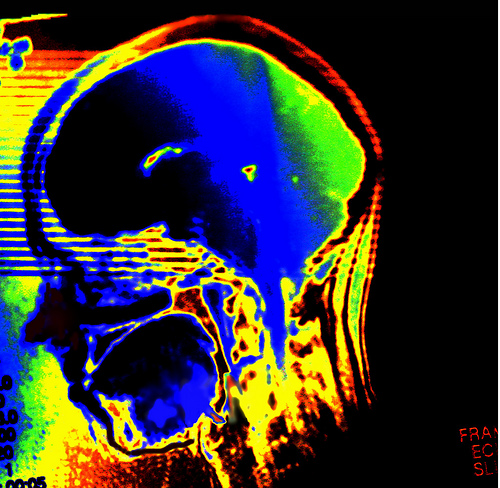Rare People Who Remember Everything
Scientists are taking a closer look at the extremely rare people who remember everything from their pasts. And yes, their brains are different.
Memory is a collaborative effort within the brain. Image courtesy of Flickr user alles-schlumpf
At last count, at least 33 people in the world could tell you what they ate for breakfast, lunch and dinner, on February 20, 1998. Or who they talked to on October 28, 1986. Pick any date and they can pull from their memory the most prosaic details of that thin slice of their personal history.
Others, no doubt, have this remarkable ability, but so far only those 33 have been confirmed by scientific research. The most famous is probably actress Marilu Henner, who showed off her stunning recall of autobiographical minutiae on “60 Minutes” a few years ago.
What makes this condition, known as hyperthymesia, so fascinating is that it’s so selective. These are not savants who can rattle off long strings of numbers, Rainman-style, or effortlessly retrieve tidbits from a deep vault of historical facts. In fact, they generally perform no better on standard memory tests than the rest of us.
Nope, only in the recollection of the days of their lives are they exceptional.
Obsessing over details
How does science explain it? Well, the research is still a bit limited, but recently scientists at the University of California at Irvine, published a report on 11 people with superior autobiographical memory. They found, not surprisingly, that their brains are different. They had stronger “white matter” connections between their mid and forebrains, when compared with the control subjects. Also, the region of the brain often associated with Obsessive-Compulsive Disorder (OCD), was larger than normal.
In line with that discovery, the researchers determined that the study’s subjects were more likely than usual to have OCD tendencies. Many were collectors–of magazines, shoes, videos, stamps, postcards–the type of collectors who keep intricately detailed catalogs of their prized possessions.
The scientists are wary, as yet, of drawing any conclusions. They don’t know how much, or even if that behavior is directly related to a person’s autobiographical memory. But they’re anxious to see where this leads and what it might teach them about how memory works.
Is it all about how brain structures communicate? Is it genetic? Is it molecular? To follow the clues, they’re analyzing at least another three dozen people who also seem to have the uncanny ability to retrieve their pasts in precisely-drawn scenes.
Why our stories change
What about the rest of us? Our personal memories are much more erratic, some powerfully vivid, most frustratingly murky. And fluid.
That’s right, fluid. We like to believe that memories, once created, are like data filed away, constant and enduring. The challenge, we think, is in retrieving the uncorrupted files.
But recent research suggests that memory doesn’t work like that. Personal memories are more like mental reconstructions where the original details are contorted, at least to some degree, by who we are today.
Science writer Charles Fernyhough, author of the new book, Pieces of Light: The New Science of Memory, offered this explanation in The Guardian:
“When we look at how memories are constructed by the brain, the unreliability of memory makes perfect sense. In storyboarding an autobiographical memory, the brain combines fragments of sensory memory with a more abstract knowledge about events, and reassembles them according to the demands of the present.”
Recalling a memory, in fact, appears to be a collaborative effort of different parts of our brains. It also seems to be strengthened and modified each time it’s retrieved. Scientists have a term for this–reconsolidation. And they’ve found that a memory is not only a reflection of the original event, but also a product of each time you call it up. So memories, it turns out, aren’t fixed; they’re dynamic, reshaped by our current emotions and beliefs.
And that’s not a bad thing. As Fernyhough posits, the purpose of memory is about adapting and looking into the future as much as into the past. “There is only a limited evolutionary advantage in being able to reminisce about what happened to you,” he writes, “but there is a huge payoff in being able to use that information to work out what is going to happen next.”
The good and the bad
According to recent research, here are a few of the things that are good or bad for your memory:
-
- GOOD: Green tea: A study published in the European Journal of Clinical Nutrition concludes that green tea seems to activate the part of the brain associated with working memory.
- BAD: Junk food: Research at Brown University led scientists to conclude that a diet heavy in junk food can stop brain cells from responding properly to insulin and and that can hinder one’s ability to create new memories.
- GOOD: Frequent exercise: According to a study at Dartmouth University, exercise generally enhances the ability to remember. People in the study who exercised regularly improved their memory test scores, and this was particularly true for those who exercised the day they re-took the test.
- BAD: Frequent eating: A study published in a recent issue of Neurology warned that people over 50 who are obese are more likely to lose memory and cognitive skills during the next decade than their fitter counterparts.
- GOOD: Piano tuning: A team of British scientists discovered highly specific changes in the hippocampus–which affects memory– within the brains of professional piano tuners. They suggested that the act of playing and listening closely to two notes played simultaneously as they tuned pianos helped make their brains more adaptive.
- BAD: Working near MRI scanners: Research by Dutch scientists suggests that people with frequent exposure to the magnetic fields used to create MRI images may be at greater risk of diminished working memory.
Video bonus: See what researchers learned about memory from the brains of London taxi drivers.
More from Smithsonian.com
/https://tf-cmsv2-smithsonianmag-media.s3.amazonaws.com/accounts/headshot/randy-rieland-240.png)

/https://tf-cmsv2-smithsonianmag-media.s3.amazonaws.com/accounts/headshot/randy-rieland-240.png)